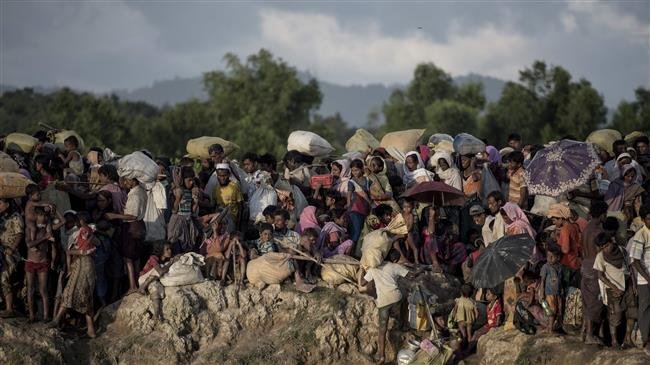
RNA - In a draft statement, which would be delivered at the end of meetings of the 10-member Association of Southeast Asian Nations (ASEAN) in Singapore, it was mentioned that the situation in Rakhine was a “matter of concern.”
“We called on the Independent Commission of Enquiry established by the Government of Myanmar to carry out an independent and impartial investigation of the allegations of human rights violations and related issues, and hold those responsible fully accountable,” said the ASEAN draft statement.
Sources close to pre-summit discussions said Singapore was leaning toward a stronger stance because it feels responsibility as the summit host to protect its credibility.
Singaporean Foreign Minister Vivian Balakrishnan earlier this year said his ASEAN peers had urged Myanmar to give the inquiry commission a full mandate to hold those responsible accountable.
ASEAN's Muslim-majority members, Malaysia, Indonesia and Brunei, tend to take the toughest line on the Rohingya matter.
Malaysian Prime Minister Mahathir Mohamad has served notice he has lost faith in Nobel Peace laureate and Myanmar’s de facto leader Aung San Suu Kyi, because of the Rohingya issue.
"We have made it quite clear we don't really support her anymore," Mahathir said in an interview over a month ago. "Our policy in ASEAN is non-interference in the internal affairs of the countries, but this is ... grossly unjust."
Suu Kyi, who will be joining the summit in Singapore, has been widely criticized for her handling of the Rohingya crisis.
Mohamad, ASEAN’s senior most leader, was scathing about Suu Kyi on Tuesday when asked about the situation in Myanmar. “It would seem that Aung San Suu Kyi is trying to defend what is indefensible,” the 93-year-old told reporters in Singapore. “We are very disappointed, because someone who has been detained before knows the sufferings, and should not inflict it on others.”
Amnesty International said on Tuesday it had withdrawn its most prestigious human rights prize from Suu Kyi, accusing her of perpetuating human rights abuses by not speaking out about violence against the Rohingya.
On Tuesday, United Nations human rights chief Michelle Bachelet called on Bangladesh to halt plans to repatriate hundreds of Rohingya refugees to Myanmar, warning that their lives would be at "serious risk."
Forcibly returning or expelling refugees and asylum-seekers to their home country would violate international law, which forbids it to places where returnees face threats of persecution or their lives would be endangered, she said in a statement.
"We are witnessing terror and panic among those Rohingya refugees in Cox’s Bazar who are at imminent risk of being returned to Myanmar against their will," Bachelet said.
"With an almost complete lack of accountability, indeed with ongoing violations, returning Rohingya refugees to Myanmar at this point effectively means throwing them back into the cycle of human rights violations that this community has been suffering for decades."
Elsewhere in her statement, she said two men had attempted suicide.
Both governments have been pushing ahead with this first large-scale repatriation effort. This has prompted criticism from a group of 42 aid agencies who said in a statement that it would be “dangerous” for them.
Hundreds of thousands of Rohingya Muslims have been living for more than a year in cramped refugee camps in southeastern Bangladesh after fleeing violence in Rakhine at the hands of the Myanmar military. The campaign against the Rohingya, which the UN has described as a textbook example of ethnic cleansing, has seen mass killings, torture, and gang-rape of the Muslims as well as arson attacks against their homes and farms in Rakhine.
847/940